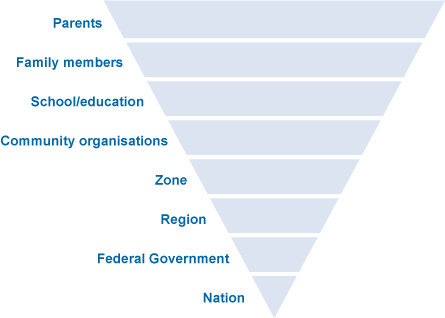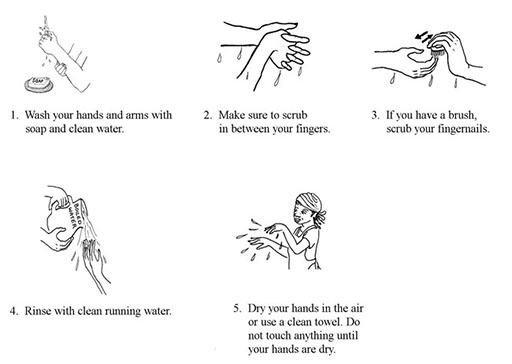13.2.1 Knowledge of WASH practices is not enough to change behaviour
Knowledge can be defined as all the information we have learned and synthesised during our growth and development.
We assume you know that people who drink dirty water may get sick as a result because harmful bacteria live in the water. Think for a moment about how you acquired this knowledge?
You may have been told not to drink dirty water by your parents; or perhaps you learned about bacteria at school; or maybe the Health Extension Worker made a poster about only drinking clean water to avoid getting diarrhoea; you could have heard about it on the radio, or learned from your own experience if you drank dirty water as a child and developed diarrhoea afterwards.
Figure 13.3 summarises the ‘upside-down pyramid’ of sources of knowledge acquired during a lifetime.

Education is a key factor in improving the knowledge of WASH issues in a community. Learning about hygiene and sanitation in school is a particularly important driver of behaviour change. The Ethiopian government has a strong commitment that all children should attend school. If children learn the right way from a young age, they will keep good WASH practices throughout their lives. For example, they can be taught the correct way to wash their hands at critical times, that is, before and after preparing food or eating, and after urinating, defecating or cleaning a child’s bottom (Figure 13.4).
However, health education programmes are often unable to achieve behaviour change simply by giving adults knowledge of the health risks of poor hygiene or why they should not pollute the physical environment with waste. Even if people are given accurate information about what causes diarrhoea, this knowledge is generally not enough to persuade them to change poor hygiene and sanitation practices, their routine actions, doing something in the same way every time. For example, people whose routine practice is to defecate in the open every day are unlikely to change their behaviour simply because they have been given new knowledge about the risks to their health and the environment.
13.2 How does the social environment influence WASH practices?

